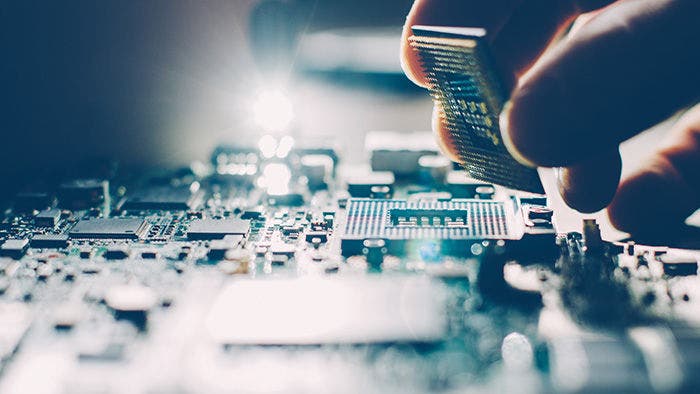Plus: New open-source AI model is 30 times cheaper than Western competition

Welcome to Computing’s weekly roundup of tech news in Asia. This time we look at the USA’s softening stance on China; the release of yet another low-cost AI disrupter; and a new internet speed record in Japan.
The USA has begun to loosen its trade embargo against China, with mid-range AI products beginning to make their way into the country from manufacturers like AMD and Nvidia.
Nvidia’s H20 and AMD’s MI308 are less powerful GPUs specifically designed to skirt trade bans, but the US government cracked down on their export in April. After months of sustained lobbying from the chip industry, Washington has reversed its decision and decided to allow their sale again.
Part of the USA’s crackdown aimed to target dual-use tech, which can be used in both civilian and military applications; but it also aimed to disrupt China’s AI development. With the release of models like DeepSeek and, this week, Kimi K2, which can be trained using much less powerful processors, that aim seems null and void.
Australia
- Greenroom Robotics, an AI startup developing software for autonomous vessels, says the Australian government has granted it one of the first AUKUS exemption licences. That allows it share information with defence contractors in the USA and UK. Source
China
- The US government has lifted a ban on Nvidia selling some AI chips, including the lower-powered H20 GPU, to China after sustained lobbying by the company. Source
- AMD has also had the nod from the US government to resume exporting some accelerators to China. Source
- China’s competition regulator has tentatively approved an acquisition by US company Synopsys of 3D design software company Ansys after the US government eased restrictions on chip design software. Source
- Lookout researchers have found evidence that Chinese authorities are using malware called Massistant to collect “extensive” information from mobile devices. Source
- A new low-cost Chinese AI model has appeared in the wake of DeepSeek. Moonshot AI’s Kimi K2 is an open source model apparently trained for writing computer code. Kimi K2 charges 15 cents for every 1 million input tokens and $2.50 for 1 million output tokens: 15 and 30 times less, respectively, that Anthropic’s Claude Opus 4. Source
- Uber has signed a new deal with China’s Baidu, to deploy “thousands” of Baidu’s Apollo Go driverless cars on the Uber platform in MEA later this year. Source
India
- Tesla finally opened its first showroom – nine years after it was first mooted – after years of delays and changed plans. Source
- QpiAI, an Indian quantum computing startup, has raised $32 million in a new funding round, co-led by money from the Indian government’s National Quantum Mission. Source
Japan
- Japanese researchers claim to have broken the record for data transmission over the internet, achieving 125,000 gigabytes per second over 1,120 miles using a new type of optical fibre. Source
- Recruit Holdings, the Japanese parent company of job search platforms Indeed and Glassdoor, has announced the layoff of approximately 1,300 employees, or 6% of its HR Technology segment workforce. Source
- SoftBank chair and CEO Masayoshi Son says the company is developing an AI agent system to be used internally. Source
- Rapidus has begun prototyping test wafers with 2nm gate-all-around (GAA) transistor structures at its IIM-1 facility in Hokkaido. Source
Taiwan
- Proofpoint researchers say Chinese-linked hackers are targeting Taiwan’s chip industry and investment analysts, with at least three groups identified. Source
Elsewhere in Asia
- Malaysia: The country has announced new restrictions on exporting US AI chips, with exporters having to inform the authorities 30 days in advance. It’s seen as a move to reduce the smuggling of AI chips into China. Source
- North Korea: North Korean hackers have published 67 malicious packages to the npm node.js registry, in another attempted software supply chain attack. The packages have already been downloaded 17,000 times. Source
- South Korea: South Korea’s top court has cleared Jay Y. Lee, chair of Samsung Electronics, of charges of accounting fraud and stock manipulation relating to an $8 billion merger in 2015. Source
